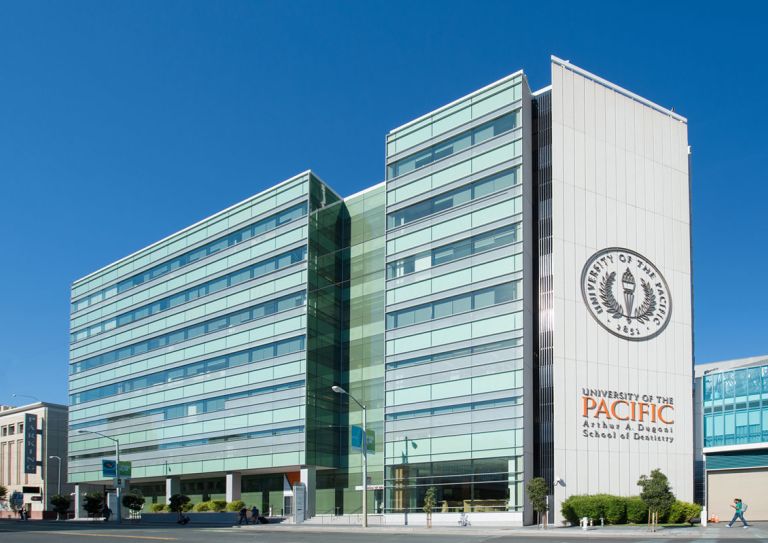Approximately 90% of Pacific students take out some type of loan to help with their educational expenses. While borrowing for dental school may be necessary, we encourage you to follow a budget and try to reduce expenses when possible. Budgeting and being a wise borrower will decrease your student loan debt that will need to be repaid after graduation.
Direct Unsubsidized, Graduate Plus, and private loans begin to accrue interest once they are disbursed to the school. A Pacific student who borrows the maximum amount for direct cost and living allowance may accrue as much as $45,000 in interest by the end of the three-year program.
Commitment Service Scholarship
Commitment service scholarships provide support for educational and living expenses while enrolled in dental school. In exchange, recipients are required to serve in the military or in areas with health care shortages after graduation. For specific information, please contact:
- Army HPSP Scholarship
- Navy HPSP Scholarship
- Air Force HPSP Scholarship
- National Health Service Corps
- Indian Health Services Scholarship
Student Loans
Dugoni school graduates have a great reputation for responsible and timely repayment. Unlike grants and scholarships, student loans must be repaid. Most dental students use student loans to help pay for dental school. The most common types of loans currently used by dental students are the federal direct unsubsidized loan and the federal direct PLUS (also known as Grad PLUS). However, please note there are major changes to the federal loan programs effective July 1, 2026 that will impact some dental school students. It is important you understand the different types of loans and the benefits and downsides of each before applying for them.
Loan Repayment Programs
After you complete your education, you may be able to participate in a loan repayment program. A borrower who works in a health care shortage area providing care to underserved populations may be eligible for a federal or state loan repayment program such as the Indian Health Service, National Health Service Corp, Faculty Loan Repayment program or National Institutes of Health. The Armed Forces offers a loan repayment plan to eligible military personnel.
This link will help give you general information regarding loan repayment/forgiveness programs.
Living Expenses
A living allowance is awarded to help with a student's basic living expenses — housing, utilities, food, transportation and other miscellaneous costs. The federal budget reflects a modest, yet adequate cost of living for each student. Financial aid funds are intended to support a single student who will be sharing housing with another person. This link will take you to the current living expense allowance.
The living allowance does not, and cannot be increased to cover, car payments, car insurance, credit cards, personal loans or other discretionary expenses.
The cost of dental school can be expensive, but it is an investment in your future that is well worth making.



